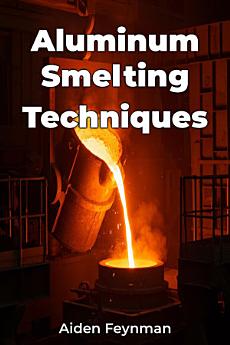Aluminum Smelting Techniques
About this ebook
The book offers a structured approach, starting with an in-depth analysis of the Hall-Héroult process, detailing its electrochemical underpinnings and limitations. It then transitions to evaluating alternative smelting technologies such as chloride electrolysis, weighing their potential advantages and disadvantages. A key theme is the integration of energy consumption reduction strategies, including waste heat recovery and renewable energy sources.
The book emphasizes the importance of a multi-faceted approach combining incremental improvements with radical new technologies. Finally, the book provides a balanced perspective, realistically assessing the technical and economic challenges associated with adopting more sustainable smelting methods. It bridges materials science, chemical engineering, and electrochemistry, offering practical guidance for professionals aiming to enhance energy efficiency and environmental performance in aluminum production. This comprehensive overview makes it a valuable resource for researchers, engineers, and policymakers in the aluminum industry.








